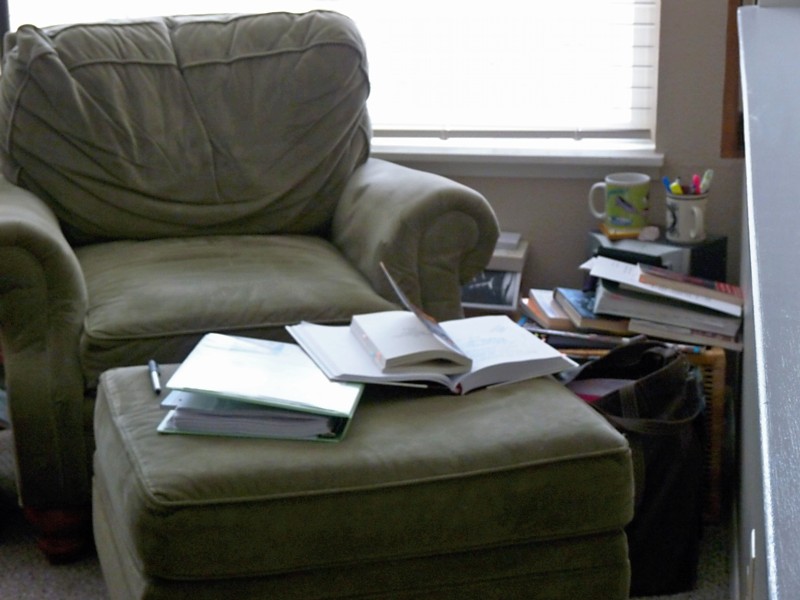Writing a novel is a terrible experience…
/1 Comment/in Uncategorized /by BethanyWriting a novel is a terrible experience, during which the hair often falls out and the teeth decay. I’m always irritated by people who imply that writing fiction is an escape from reality. It is a plunge into reality and it’s very shocking to the system.
FLANNERY O’CONNOR
Jon Winokur’s Advice to Writers once again nails my mood.
Rules, Tips, and Commandments
Articles and Essays
Resources
Interviews
Blogs
Organizations
Audio
Video
Nobel Lectures
Twitter Feeds
Self-Publishing Resources
Sui Generis
Recommended Books
-
A Dash of Style: The Art and Mastery of Punctuationby Noah Lukeman
-
Adventures in the Screen Tradeby William Goldman
-
APE: Author, Publisher, Entrepreneur-How to Publish a Bookby Guy Kawasaki, Shawn Welch
-
A Room of One’s Ownby Virginia Woolf
-
The Art of Fiction: Illustrated from Classic and Modern Textsby David Lodge
-
The Art of Fiction: Notes on Craft for Young Writersby John Gardner
-
The Art of the Personal Essay: An Anthology from the Classical Era to the Presentby Phillip Lopate
-
The Associated Press Stylebook 2009 (Associated Press Stylebook and Briefing on Media Law)Basic Books
-
Aspects of the Novelby E.M. Forster
-
Becoming a Writerby Dorothea Brande
-
Bird by Bird: Some Instructions on Writing and Lifeby Anne Lamott
-
Booknotes: America’s Finest Authors on Reading, Writing, and the Power of IdeasThree Rivers Press
-
Brewer’s Dictionary of Phrase and Fable, Seventeenth Editionby John Ayto
-
The Careful Writerby Theodore M. Bernstein
-
The Chicago Manual of StyleUniversity Of Chicago Press
-
The Copyeditor’s Handbook: A Guide for Book Publishing and Corporate Communicationsby Amy Einsohn
-
The Courage to Write: How Writers Transcend Fearby Ralph Keyes
-
The Craft of Fictionby Percy Lubbock
-
The Editor’s Lexicon: Essential Writing Terms for Novelistsby Sarah Cypher
-
Editors on Editing: What Writers Need to Know About What Editors DoGrove Press
-
The Elements of Style, Fourth Editionby William Strunk Jr., E. B. White
-
Endangered Species: Writers Talk About Their Craft, Their Visions, Their Livesby Lawrence Grobel
-
Fiction Writer’s Handbookby Hallie Burnett, Whit Burnett
-
Fiction Writer’s Workshopby Josip Novakovich
-
Flaubert’s Parrotby Julian Barnes
-
Follow the Story: How to Write Successful Nonfictionby James B. Stewart
-
The Forest for the Trees: An Editor’s Advice to Writersby Betsy Lerner
-
For Writers Onlyby Sophy Burnham
-
William Goldman: Four Screenplays with Essaysby William Goldman
-
Fowler’s Modern English Usageby the late R. W. Burchfield
-
The Friendly Shakespeare: A Thoroughly Painless Guide to the Best of the Bardby Norrie Epstein
-
A Glossary of Literary Termsby M.H. Abrams, Geoffrey Harpham
-
How Fiction Worksby James Wood
-
How Not to Write: The Essential Misrules of Grammarby William Safire
-
How to Get Happily Publishedby Judith Appelbaum
-
How to Write Science Fiction and Fantasy (Genre Writing)by Orson Scott Card
-
How To Write Short Stories: With Samplesby Ring Lardner
-
If You Want to Write: A Book about Art, Independence and Spiritby Brenda Ueland
-
Inventing the Truth: The Art and Craft of MemoirMariner Books
-
Keep the Aspidistra Flying (Harvest Book)by George Orwell
-
Lapsing Into a Comma : A Curmudgeon’s Guide to the Many Things That Can Go Wrong in Print–and How to Avoid Themby Bill Walsh
-
Letters to a Young Poet: Translated and with a Foreword By Stephen Mitchellby Ranier Maria Rilke
-
Making a Good Script Greatby Linda Seger
-
Making a Literary Lifeby Carolyn See
-
Master Class: Scenes from a Fiction Workshopby Paul West
-
Metaphors We Live Byby George Lakoff, Mark Johnson
-
The Midnight Disease: The Drive to Write, Writer’s Block, and the Creative Brainby Alice Weaver Flaherty
-
Henry Miller on Writing (New Directions Paperbook)by Henry Miller
-
Movie Speak: How to Talk Like You Belong on a Movie Setby Tony Bill
-
Narrative Design: Working with Imagination, Craft, and Formby Madison Smartt Bell
-
New Grub Street (Broadview Editions)by George Gissing
-
Nonconformityby Nelson Algren
-
On Becoming a Novelistby John Gardner
-
One Writer’s Beginnings (The William E. Massey Sr. Lectures in the History of American Civilization)by Eudora Welty
-
On Writing Short StoriesOxford University Press, USA
-
On Writing: A Memoir Of The Craftby Stephen King
-
On Writing Well, 30th Anniversary Edition: The Classic Guide to Writing Nonfictionby William Zinsser
-
The Oxford Dictionary of Allusions (Oxford Paperback Reference)Oxford University Press, USA
-
Poetic Meter and Poetic Formby Paul Fussell
-
The Paris Review Interviews, Vols. 1-4by The Paris Review
-
Reading Like a Writer: A Guide for People Who Love Books and for Those Who Want to Write Them (P.S.)by Francine Prose
-
The Rhetoric of Fictionby Wayne C. Booth
-
The Right to Write: An Invitation and Initiation into the Writing Lifeby Julia Cameron
-
Self-Editing for Fiction Writers, Second Edition: How to Edit Yourself Into Printby Renni Browne, Dave King
-
Dan Poynter’s Self-Publishing Manual, 16th Edition: How to Write, Print and Sell Your Own Book (Self Publishing Manual)by Dan Poynter
-
Simple & Directby Jacques Barzun
-
Sister Bernadette’s Barking Dog: The Quirky History and Lost Art of Diagramming Sentencesby Kitty Burns Florey
-
The Situation and the Story: The Art of Personal Narrativeby Vivian Gornick
-
The Sound on the Page: Great Writers Talk about Style and Voice in Writingby Ben Yagoda
-
Story: Substance, Structure, Style and The Principles of Screenwritingby Robert Mckee
-
Stylish Academic Writingby Helen Sword
-
Successful Television Writingby Lee Goldberg, William Rabkin
-
The Summing Upby W. Somerset Maugham
-
13 Ways of Looking at the Novelby Jane Smiley
-
Tales from the Script: 50 Hollywood Screenwriters Share Their Storiesby Peter Hanson, Paul Robert Herman
-
To Show and to Tell: The Craft of Literary Nonfictionby Phillip Lopate
-
Understanding Comics: The Invisible Artby Scott Mccloud
-
What If? Writing Exercises for Fiction Writersby Anne Bernays, Pamela Painter
-
The War of Art: Break Through the Blocks and Win Your Inner Creative Battlesby Steven Pressfield
-
Why We Write: 20 Acclaimed Authors on How and Why They Do What They DoPlume
-
Women Writers at Work: The Paris Review InterviewsModern Library
-
The Writer Got Screwed (but didn’t have to): Guide to the Legal and Business Practices of Writing for the Entertainment Industryby Brooke A. Wharton
-
Ambrose Bierce’s Write It Right: The Celebrated Cynic’s Language Peeves Deciphered, Appraised, and Annotated for 21st-Century Readersby Ambrose Bierce, Jan Freeman
-
The Writer’s Chapbook: A Compendium of Fact, Opinion, Wit, and Advice from the Twentieth Century’s Preeminent Writers (Modern Library)Modern Library
-
The Writer on Her Work, Volume 1by Janet Sternberg
-
The Writers Journey: Mythic Structure for Writers, 3rd Editionby Christopher Vogler
-
The Writer’s Legal Companion: The Complete Handbook For The Working Writer, Third Editionby Brad Bunnin, Peter Beren
-
A Writer’s Realityby Mario Vargas Llosa
-
A Writer’s Time: Making the Time to Writeby Kenneth Atchity
-
Writing About Your Life: A Journey into the Pastby William Zinsser
-
Writing Down the Bones: Freeing the Writer Within (Paperback)by Natalie Goldberg (Author)
-
Writing in General and the Short Story in Particularby L. Rust Hills
-
Writing for Your Lifeby Deena Metzger
-
The Writing Lifeby Annie Dillard
-
The Writing Life: Writers On How They Think And Workby Marie Arana
-
The Writing of Fictionby Edith Wharton
-
Writing the Novel: From Plot to Printby Lawrence Block
-
Writing Past Dark: Envy, Fear, Distraction and Other Dilemmas in the Writer’s Lifeby Bonnie Friedman
-
You’re a Genius All the Time: Belief and Technique for Modern Proseby Regina Weinreich, Jack Kerouac
-
Zen in the Art of Writing: Releasing the Creative Genius Within Youby Ray Bradbury
Writing A Novel Is A Terrible Experience
Writing a novel is a terrible experience, during which the hair often falls out and the teeth decay. I’m always irritated by people who imply that writing fiction is an escape from reality. It is a plunge into reality and it’s very shocking to the system.
FLANNERY O’CONNOR
Posted on  Thursday, February 25, 2016 at 12:02AM
Thursday, February 25, 2016 at 12:02AM
 Thursday, February 25, 2016 at 12:02AM
Thursday, February 25, 2016 at 12:02AM









































